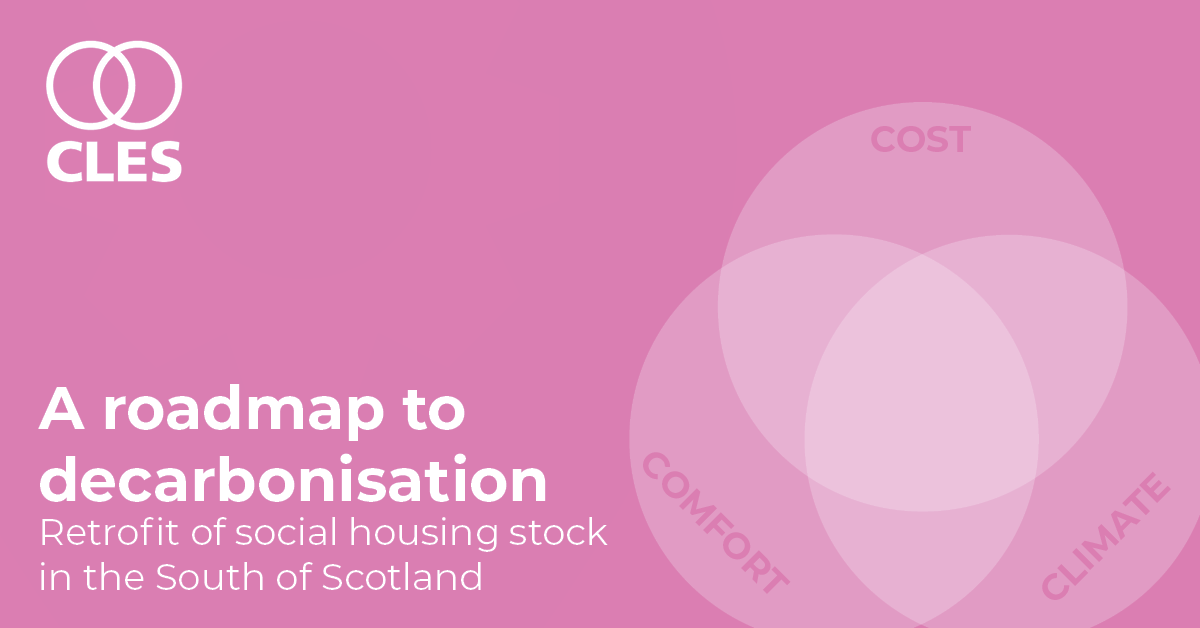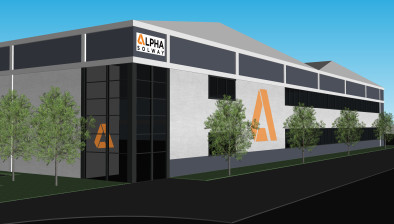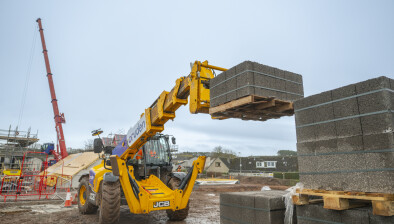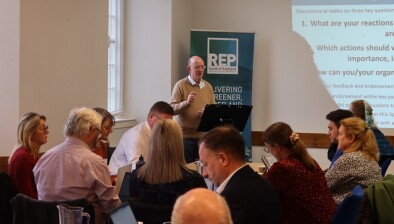Scottish social landlords could lead retrofit revolution, report finds

The Centre for Local Economic Strategies (CLES) has today released a new report exploring the potential of registered social landlords (RSLs) taking the lead in delivering a just transition in Scotland.
Analysis in A roadmap to decarbonisation, conducted by IPPR, finds that by using their influence to develop the retrofit supply chain, registered social landlords in Dumfries & Galloway and the Scottish Borders could create more than 2,000 jobs and £112m in direct GVA by 2030.
The release of the report, a year on from COP26, demonstrates the economic potential of just decarbonisation in the South of Scotland and sets out recommendations for action to move the agenda forward. In so doing, the report showcases the opportunity in Scotland for the public sector to marry the government’s ground breaking community wealth building ambitions to its climate targets to realise a just transition for the whole country, and points to the potential of doing so for the rest of the UK.
In Scotland, RSLs have been tasked with leading the charge on housing retrofit – which is viewed as critical in achieving Scotland’s ambition to reach net zero carbon by 2045. The report examines, in depth, the three interlinked challenges of retrofit: comfort, climate and cost, made even more pressing by soaring fuel prices, inflation and Brexit.
However, within these challenges, the report’s authors have identified an opportunity – a virtuous circle that can tackle the issues of comfort, climate and cost together. The report demonstrates how the housing sector can use community wealth building to deliver better economic outcomes in the places they serve, by thinking creatively about how to use their spending power.
Community wealth building is an approach which aims to ensure local organisations work together to tackle long-standing economic challenges and inequalities, so communities can access and benefit from the wealth our economy generates. In doing so, the approach can deliver more and better jobs, business growth, community-owned assets and shorter supply chains, creating greater resilience and supporting net zero ambitions.
Antonia Jennings, associate director for CLES and one of the report’s authors, said: “This research demonstrates that the much-needed net zero transition can be delivered in a way that supports the economic needs of the most vulnerable communities. Crucially, the report shows that, when the housing sector is supported to use its economic influence to develop supply chains, not only can net zero targets be met, but jobs and GVA will follow.
“But rural economies, like the South of Scotland, risk falling behind urban areas which benefit from more buoyant labour markets and developed supply chains. This is a call to action: with more support something truly transformational can be achieved, not just in the South of Scotland, but across the UK.”
Jane Morrison-Ross, chief executive of South of Scotland Enterprise (SOSE), added: “We see community wealth building as an approach which offers so much to the people in our region, in particular around the need to provide high quality, affordable housing.
“The report highlights the potential for our region to create skilled, well paid jobs, all locally based and working on making our housing stock the most energy efficient it can be.
“If the opportunities in this report can be realised, it would help keep money within our region’s economy for the benefit of everyone living and working here, at the same time as helping realise our net zero ambitions – an excellent example of community wealth building in action.
“This is the first step in a large-scale, long-term project to develop community wealth building which will need partners across the south to work closely together to achieve. We are excited by the possibilities it presents.”























